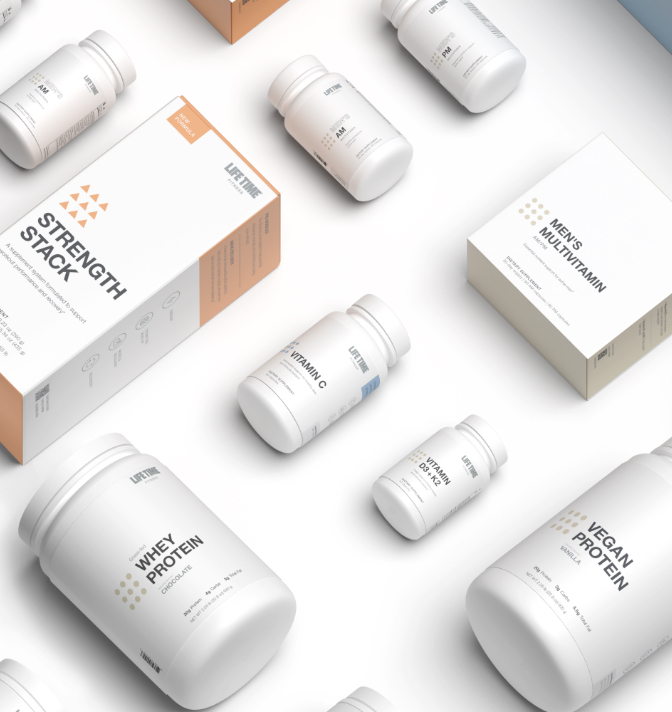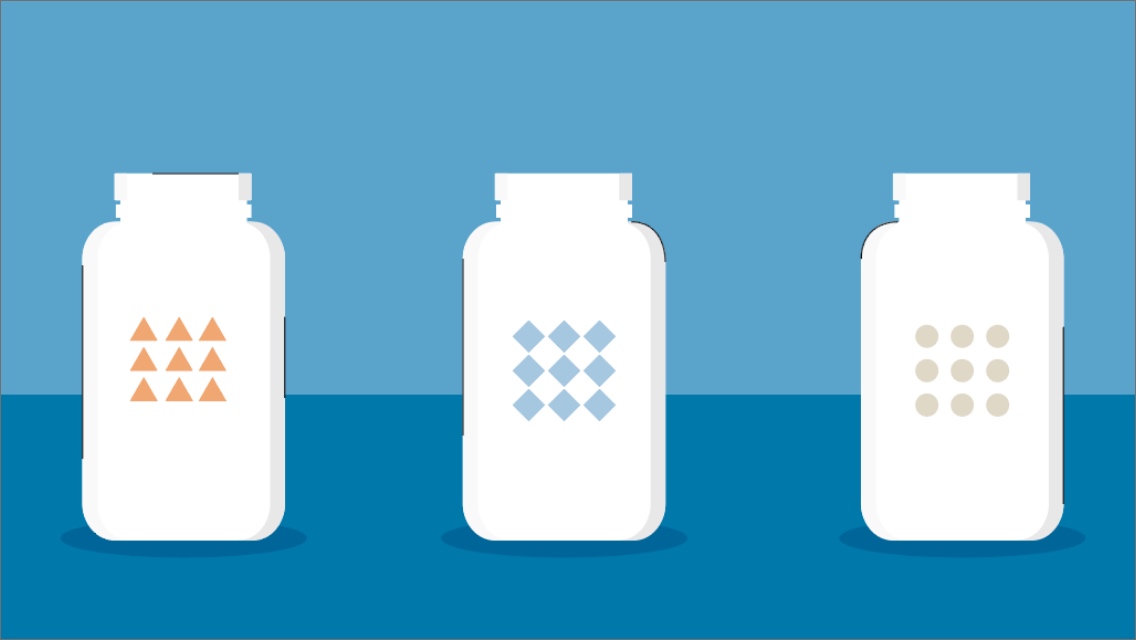Judging by its recent popularity, you might think the health benefits of collagen are new discoveries. However, an original “girl boss” named Hildegard of Bingen first wrote of the pain-relieving effects of collagen in 1175.
Living in medieval Germany, St. Hildegard was a Benedictine abbess and polymath. She was a writer, composer, philosopher, and Christian mystic. Not surprisingly, she was pretty smart when it came to holistic medicine, too.
I imagine her looking at a pot of stew that had cooled, wondering if the fatty gel that sat on top of the stew had any health benefits. Maybe she scooped it off and ate it. And after repeating for long enough, perhaps she noticed a difference in how her joints felt. Who knows . . .
At the impressive age of 77 years old, she wrote about the pain-relieving benefits of collagen. She lived another four years. Living to age 81 was pretty impressive back then.
But enough about St. Hildegard of Bingen. Let’s get into the health benefits of collagen.
Over the last several years, collagen has become one of the most popular nutritional supplements.
How did this waste product of meat, poultry, and fish processing become an anti-aging, injury-healing, joint health-inducing superstar?
What is collagen? What should you look for when buying a collagen supplement? And how does it fit in with your high-protein diet? Read on and find out.
What Is Collagen?
Collagen provides a scaffolding for most of the tissues in your body. It connects muscle to bone and bone to bone, while also building cartilage that lets your bones slide over one another without causing pain in your joints.
It keeps your organs in place. For that matter, it keeps your face in place, too.
It isn’t as hard as bone, but is stronger than muscle tissue due to its amino acid structure.
Collagen makes up about 30 percent of the total protein mass in the body, and 70 percent of the dry weight of the skin dermis.
As you age, collagen breaks down. Exercise and overuse can also cause collagen breakdown. Collagen breakdown can lead to connective tissue injuries like torn bicep tendons or Achilles tendons, loss of joint cartilage, saggy skin, wrinkles, and cellulite.
Anti-aging doctors have been injecting collagen into patients’ faces for quite some time in hopes of restoring their youth. As you age you lose collagen, making your face droop and your lips get smaller.
You’ve probably seen at least one celebrity who’s taken their collagen treatment to an extreme.
Though it may not produce an immediate effect, it’s possible you could look and feel younger by consuming, instead of injecting, collagen.
Eating Collagen Helps You Grow Collagen
In case you need another reason to get off the vegan bandwagon, you only get collagen by eating collagen.
Meat has collagen, mushrooms don’t. Poultry has collagen, peanuts and potatoes don’t. Fish has collagen, fava beans don’t.
If you want the benefits of collagen, you’ll need to eat or supplement with collagen. There’s no plant on the planet that contains collagen.
That said, even meat eaters often miss their opportunity to consume collagen in everyday meals. Chewing tendons, bones, and skin isn’t that appealing, unless you’re eating slow-cooked ribs at a barbecue restaurant.
Actually, crispy chicken, turkey skin, and pork rinds are pretty good, too. But, you’re probably not eating them every day.
For the most part, the collagen-containing parts of meat, poultry, and fish have been seen as waste products: Hides, bones, and tendons usually get tossed aside.
Interestingly, this is how the whey protein market evolved, too.
Whey was once seen as a byproduct of cheese manufacturing and tossed aside. Yet, it’s the highest biological value protein source on the planet, and a staple in the diet of health and fitness folks everywhere today.
Biological Value
Contrary to whey protein, which has the highest biological value, collagen was considered worthless because it has such a low biological value.
The concentration of essential amino acids in a protein determines its biological value. Collagen has very little essential amino acids, so it was ignored for most of modern history.
Outside of using gelatin to make jello shots for a college party, or a gelatin dessert when you want to gross out your guests, it didn’t seem to have any value.
Nutrition scientists believed the digestive process would break collagen down to the amino acids it was made from, and those amino acids would offer little value. However, that’s not the case.
When collagen is enzymatically processed, it creates peptides, which are combinations of amino acids instead of individual amino acids. These peptides get absorbed through your intestines, where they make their way to tissues that need more collagen.
In essence, collagen peptides are a potent protein source for supporting your joints, skin, hair, and nails.
Protein Sources
Most food and supplement sources of collagen come from beef or pig bones and hides, or from fish.
I expect the next decade of research will show mammal-based collagen is better for us, but that doesn’t mean you should skip the marine-sourced collagen. I just wouldn’t use marine-sourced exclusively.
Twenty-eight types of collagen exist in the body, but 80–90 percent is made up from types I, II, or III. Actually, most of it is type I.
Often, collagen supplements will contain a combination of collagen types unless the label specifies type I, II, and/or III.
Protein Processing Into Peptides
When you heat collagen in water, you get gelatin. It’s the most simple and basic form of processing collagen.
If you’ve ever made bone broth, it’s the gel that collects at the top as the bone broth cools. The gelatin contains numerous health-promoting proteins. Still, for your body to get all the benefits, you have to break it down some more.
Once the collagen is isolated from the minerals and other constituents of the bone or hide, it’s enzymatically degraded into a hydrolysate, which is soluble even in cold water.
About 10 percent of gelatin peptides are absorbed intact through the intestinal wall, where they can be used for supporting joint, connective, and skin tissue.
To increase the percentage of peptides that remain intact, the proteins can be combined with a pepsin-inactivating reagent such as ethylenediaminetetra-acetic acid. This reagent allows up to 50 percent of consumed peptides to remain intact as they pass from the digestive tract into the blood stream.
I bring up this technical point because you can find two collagen supplements sitting side by side, looking like they are the same thing.
Maybe the price of one is higher than the other, and if it’s because it contains this reagent — which quintuples the absorption of the peptides — you get a much more valuable supplement.
It’s these collagen peptides that have become known for their numerous health benefits. You’ll see them labeled as collagen hydrolysates, hydrolyzed collagen, or collagen peptides.
Health Benefits
Though bone broth and gelatin might offer some health benefits, the most impressive effects come from consuming collagen peptides. Here’s how they help.
Skin
By your late 30s to early 40s, you start showing signs of your age. Wrinkles start appearing around your eyes. Maybe your hair starts to thin.
Over time, your neck starts to look more like dried leather, especially if you spend a lot of time in the sun. You could get some cosmetic work done, but you might not need to.
A group of middle-aged women supplemented with 1 gram of low-molecular-weight collagen peptides for 12 weeks. They experienced improved skin hydration and elasticity, and a reduction in wrinkles.
In another study, adults supplemented with hydrolyzed fish collagen along with vitamins, antioxidants, and some other bioactive ingredients for 90 days. Their skin elasticity improved by 40 percent, joint pain reduced by 43 percent, and joint mobility improved by 39 percent.
Collagen supplementation won’t make grandma and grandpa look like they did in their yearbook photos, but it might make you look a little bit younger.
Joint Health
Athletes and aging adults both deal with joint discomfort. Actually, most people will deal with it now and then.Patients with osteoarthritis took 10 grams of collagen hydrolysate a day for two months. At the end of the study, they had less knee and hip pain.
For the patients to have had less pain, they must have ended with healthier joints after using the peptides, because collagen isn’t a pain reducer.
Athletes supplemented with 10 grams per day of collagen hydrolysate for six months. They also experienced less joint pain than the placebo group. In another study, young, physically active adults took 5 grams of collagen peptides a day for 12 weeks.
They also experienced a significant decrease in knee pain.
Rather than just masking the pain, which is what an analgesic does, it seems that collagen peptides may help you repair damaged or aged joint tissue.
Body Composition
You’ll find some collagen products marketed for weight loss, as some animal and human research shows that supplementing may lead to lower body fat levels. In fact, an animal study showed that collagen supplementation reduced body fat gain due to the hormonal effects of menopause.
However, it’s unlikely there is something special about collagen protein. It’s more likely that the collagen supplementation leads to a higher-protein intake, which lowers body fat and improves lean body mass.
Muscle Strength
Older adults with sarcopenia took 15 grams per day of collagen peptides and followed a full-body resistance training program. Their strength improved more than the group who strength trained without the collagen supplement.
Like the improvements in body composition, I believe this has more to do with increasing total protein intake than it does with the supplement being collagen.
Bone Density
An animal study showed that the combination of calcium citrate and collagen peptides improved markers of osteoporosis.
Calcium supplementation seems to have a minimal impact on bone density, especially when it isn’t combined with magnesium, vitamin D, and vitamin K. So, it’s more likely that the collagen contributed to the improvements in bone health.
However, when studied in women with low bone density, 10 grams of collagen hydrolysate per day for six months did not result in improvements.In my opinion, collagen is more likely to have a positive impact on joint and connective tissue than on bone itself.
Cardiovascular Health
A study of healthy, older adults showed that supplementing with just 2.5 grams of collagen peptide per day improved markers of atherosclerosis.
What’s interesting about this finding is that the results probably have nothing to do with blood lipids, and instead are related to the health of the blood vessel walls.
Most of the research so far has focused on joints and skin. But with the small amount of research related to cardiovascular health, this could be an interesting benefit as well.
Is it possible that collagen peptides could improve the function of blood vessel walls? That remains to be seen. If so, it could be a powerful tool in the battle against cardiovascular disease.
Other Common Questions
I’ll wrap this up with a few other questions commonly asked about collagen.
Should I replace some of my other protein intake with collagen peptides?
You can count your collagen consumption toward your daily protein intake. However, you may quickly reach a level of diminishing returns.
Animal research suggests you could consume up to one-third of your daily protein intake as collagen or gelatin without experiencing a negative impact on health and lean body mass.
However, this amount is based on using relatively low total protein intakes. The RDA for protein is hardly an optimal amount, compared to a more ideal level of about 1 gram per pound ideal body weight per day.
For example, a 180-pound adult would eat 180 grams of protein. One third of that is about 60 grams. If you consumed 60 grams of collagen peptides instead of high biological value protein, you’d miss out on a large amount of essential amino acids.
Most of the research to date is based on daily intakes of 10–15 grams of collagen. So, if I were to recommend an upper end for now, I’d suggest capping it at 20 grams per day.
Can’t I just eat collagen, like pork rinds, to get the benefits of collagen hydrolysates?
My half Mexican wife and I love to snack on chicharrones and pork rinds. Though there’s collagen in them, you don’t digest and absorb whole food collagen the same way you do collagen peptides.
Of course, if you like to snack on them, as I do, by all means, go for it. But you’ll still want to supplement if you’re looking for the health benefits I’ve described in this article.
When is the best time to take collagen peptides?
I didn’t come across any research that compared the effects of using the peptides at one time or another. In my opinion, it might be better to take them before or between meals to maximize absorption, but I have no research to back up my suggestion.
How do you use collagen peptides?
You can use them like any other protein shake. And, the cool thing about peptides is that they mix easier than whey protein.
You can add them to cold water without getting clumps of powder stuck to your glass. You can also add unflavored, chocolate, or vanilla peptides to your coffee for a nice addition to your already-healthy black coffee.
Are collagen peptides good for a post-workout shake?
No. Although they definitely have a positive impact on your joints, collagen peptides lack essential amino acids. You need EAA-rich protein to stimulate muscle protein synthesis following your training session.
Stick with high-quality proteins like whey, egg, beef, etc.
References






This Post Has One Comment
[…] Collagen is what binds muscles to bone and bone to bone. It decreases as we get older causing joint pain, aging, cellulite, and sad unhealthy-looking lips! [source] […]
Comments are closed.